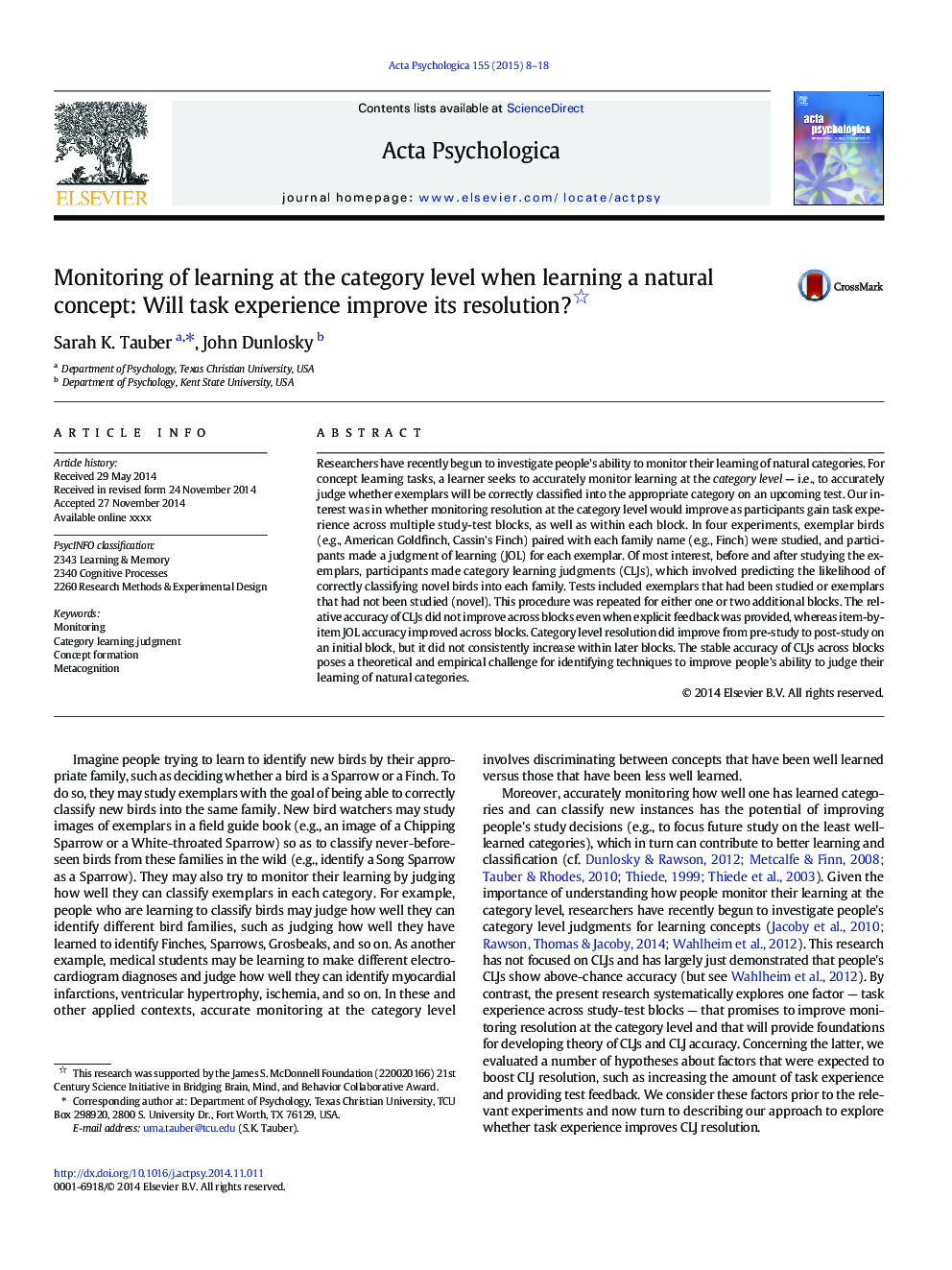| Article ID | Journal | Published Year | Pages | File Type |
|---|---|---|---|---|
| 7277475 | Acta Psychologica | 2015 | 11 Pages |
Abstract
Researchers have recently begun to investigate people's ability to monitor their learning of natural categories. For concept learning tasks, a learner seeks to accurately monitor learning at the category level - i.e., to accurately judge whether exemplars will be correctly classified into the appropriate category on an upcoming test. Our interest was in whether monitoring resolution at the category level would improve as participants gain task experience across multiple study-test blocks, as well as within each block. In four experiments, exemplar birds (e.g., American Goldfinch, Cassin's Finch) paired with each family name (e.g., Finch) were studied, and participants made a judgment of learning (JOL) for each exemplar. Of most interest, before and after studying the exemplars, participants made category learning judgments (CLJs), which involved predicting the likelihood of correctly classifying novel birds into each family. Tests included exemplars that had been studied or exemplars that had not been studied (novel). This procedure was repeated for either one or two additional blocks. The relative accuracy of CLJs did not improve across blocks even when explicit feedback was provided, whereas item-by-item JOL accuracy improved across blocks. Category level resolution did improve from pre-study to post-study on an initial block, but it did not consistently increase within later blocks. The stable accuracy of CLJs across blocks poses a theoretical and empirical challenge for identifying techniques to improve people's ability to judge their learning of natural categories.
Keywords
Related Topics
Life Sciences
Neuroscience
Cognitive Neuroscience
Authors
Sarah K. Tauber, John Dunlosky,
